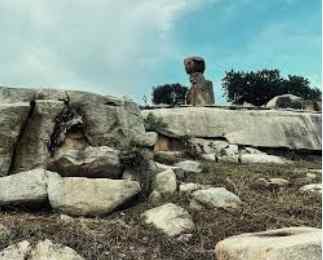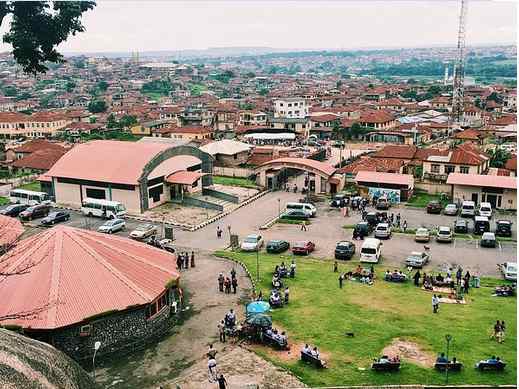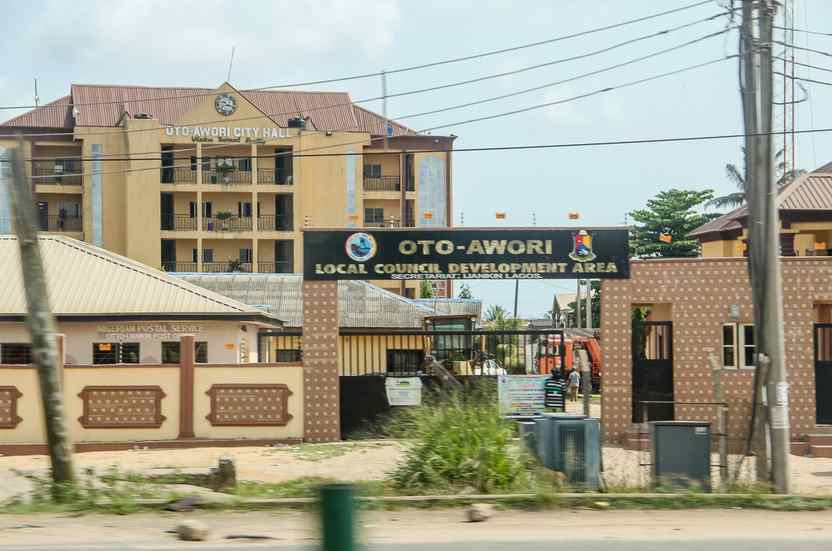
support@yorubalibrary.com
+2348073529208, 07038599574

Igbeti is a historic town in Oyo State, South-West Nigeria. This naturally beautiful and resource-rich town lies within the northern part of Oyo State and has long been a place of pride for its people. Its strategic location at the meeting point of cultural and trade routes has made it an important settlement for commerce, agriculture, and traditional heritage in Yoruba land.
The history of Igbeti is blended with both agriculture and mining. While it has been blessed with fertile farmlands that sustain the people’s farming activities, its most remarkable feature is the abundance of marble, which has earned it recognition across Nigeria and beyond. Over the years, Igbeti has maintained its cultural roots while adapting to modern life, becoming a unique blend of tradition and progress.
Aside from its natural resources, Igbeti is surrounded by stunning hills, caves, and landscapes that hold spiritual and historical importance. These sites are not only part of the town’s cultural identity but also attract visitors who wish to connect with nature and learn more about Yoruba heritage. Festivals, oral history, and Oriki (praise poetry) continue to play a vital role in preserving the legacy of Igbeti for future generations.
Location and Geography
Igbeti is located in the northern part of Oyo State, bordered by Ilorin in Kwara State to the north and Oke-Ogun towns such as Saki and Kishi to the west. The town is surrounded by rocky hills, including the famous Iya Mopo Hill, which stands as a towering landmark. Its location in the savanna region supports both farming and livestock rearing.
Cultural and Historical Significance
Igbeti’s cultural life is rich with traditions that date back centuries. The town is known for its cool festivals, including annual celebrations that honor both ancestral spirits and agricultural cycles. The abundance of marble has also shaped its identity, making it an industrial reference point in Oyo State. The stories passed down by elders emphasize the resilience, unity, and resourcefulness of its people.
People and Occupations
The people of Igbeti are predominantly Yoruba, with farming, marble mining, and trading as major occupations. Cassava, yam, maize, and vegetables are common crops, while the marble industry remains a key contributor to the local economy. Many residents are also involved in crafts, local markets, and traditional healing practices.
Unique Features of the Town
Igbeti’s landmarks include Iya Mopo Hill, Agbele Rock, and several natural caves that have historical and mythical significance. The marble quarries are among the largest in Nigeria, making the town a reference point for natural stone production. Visitors are often drawn to its scenic beauty and cultural warmth.
Oriki Ilu Igbeti
Below is the traditional Oriki (praise poetry) of Igbeti, celebrating its beauty, strength, and the rich legacy of its people.
Igbeti ọmọ Ọlọyẹ
Onile Ọyẹ́ ara Ìjí mèje
Ọmọ ọlọ́yẹ́ moyin àjíbòkè
Òjò kí pa ara Igbẹti abilọyẹ lọyẹ ń pa
Ọmọ ẹkùn níbà
Ìjí àlògbó ọmọ ẹkùn níbà
Ọmọ ẹkùn níbà to ń gbé inú ìbà sooro
Tí baba onikaluku bá ko ẹkùn lọ́nà wọn a ma sá kíjokíjo
Baba mi ko ẹkùn lọ́nà, ó kó tapó tọfà silẹ,
ó ranwọ́ rederede sì ẹranko
Èjìká òsì ni baba fi gbé ẹkùn dele
Ọmọ ẹkùn náà dà ọmọ ẹkùn náà ré
Igbẹti ọmọ A sọyẹ́ sooru yọyọ
To ti ilé Ìgbàró wá
Monínúọla, ọmọ ẹkùn lórí òkè
Ìjí ẹlẹ́yọ̀ ọmọ ẹ̀yọ̀
Ìjí Mọ̀pó Ẹlẹ́yọ̀ ọmọ Orò
Wọn ní òtútù kí i pa ọmọ Igbẹti
Ẹ má da wọn lohun ó jàre
Nínú ilé ìran baba mi ni
Wọn ní òtútù kí pa ọmọ Ìgbẹ́tì
Aṣọ to tóbi ni ó fi ń ṣagbeji sí ara
Òkè mẹta ọ̀tọ̀tọ̀ ni ń bẹ nile ara Ìgbẹ́tì
Gbogbo wọn loni ookọ wọn
Ọ̀kan ń bẹ nibẹ wọn a jẹ èkuru funfun
Ọ̀kan ń bẹ nibẹ wọn a jakara
Ọkan ń bẹ nibẹ wọn a jèwówó
Òkè kìbá rè Òwu
Ko dé lógún ọdún
Òkè i ba re Òwu
Ko de lọgbọn oṣù
Ayibioowu Àtàgé
Ẹ máà joke ó re Òwu
Agbókèdé
Ọmọ Ìgbẹ́tì Asọyẹsooru
Òkè mẹta ọ̀tọ̀tọ̀
O tún ń bẹ ní Igbẹti
Gbogbo ẹ lo lapẹẹrẹ
Ọkan a ṣe bí òtútù
Ọkan a ṣe bí ooru
Ọkan ń ṣe bi èyí tó yadíkálà larin wọn
Conclusion
Igbeti stands as a town of natural abundance and cultural pride. Its marble treasures, fertile land, and strong traditions make it a remarkable part of Yoruba history.
Need more? Browse through our Oriki Gallery today, at zero cost.

Check out the detailed Oriki of Abeokuta, the capi…

The authentic Oriki of the Awori people, one of th…